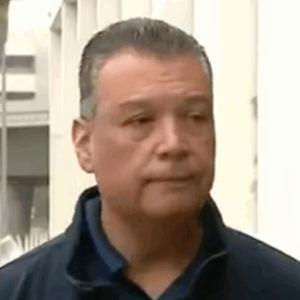5 Family Secrets That Unraveled Lives—and What They Taught Us
In every family, there are stories passed down with affection, pride, and sometimes, a touch of mystery. But occasionally, hidden truths lie dormant for decades—waiting for the right moment to surface and reshape everything we thought we knew. Below, we revisit five real-life accounts in which long-buried family secrets exploded into view, leaving shockwaves that rippled through generations. Through these narratives, we explore not only the human drama behind each revelation but also the resilience and transformation that followed.
1. The Twin Who Never Was: A Daughter’s Unexpected Encounter in Paris
A Childhood Shadowed by Loss
At age eleven, Elena’s world collapsed when her mother, Sarah Bennett, drowned in a freak rip current during a family outing at the beach. Sarah had been a confident swimmer—a former lifeguard with a sixth sense for turbulent water—but that day, the undercurrent proved too strong. Elena remembers her father’s stunned silence, the way he stared at the empty shoreline, and the hollow ache that settled in their home. Over the following years, photographs, home videos, and whispered memories became Elena’s sole connection to the vibrant mother she barely had time to know.
Paris: A City of Light—and of Revelations
Years later, now a marketing executive traveling through Europe, Elena found herself on a cool spring afternoon outside a café along the Seine. The city buzzed with tourists and locals alike; artists sketched by the riverbank, chefs prepared pastries behind glass displays, and the Eiffel Tower stood sentinel in the distance. As Elena scanned the crowd, a woman by the café’s wrought-iron tables caught her eye.
The woman’s features—her soft brown hair, high cheekbones, and a gentle smile—were so uncannily similar to the photographs Elena had of her mother that she froze in her tracks. A sudden, inexplicable urgency propelled Elena forward.
“Excuse me,” she began, voice trembling, “I know this is strange, but you look so much like my mother. Her name was Sarah…”
The Twin Sister Revealed
The woman flinched at the mention of “Sarah.” Her eyes widened, and she stepped back, tears welling.
“I… I had a twin sister named Sarah,” she whispered. “We were born in El Paso, but we were adopted by different families. I haven’t seen her in years.”
Elena’s breath caught. All her life, she had believed herself to be an only daughter. Her father never spoke of any siblings, and Elena had assumed her mother had no living relatives. Yet here, on the cobblestones of Paris, stood the living mirror of her mother’s face—her aunt, unknown until this moment.
A Fleeting Connection
They embraced briefly, two women connected by blood yet divided by decades and silence. Elena learned that her aunt, whom we’ll call Maria for privacy, had tried in her twenties to contact Sarah. Their correspondence lasted mere months before life’s demands and emotional distance severed communication. Maria had assumed that Sarah had either lost interest or chosen to remain silent.
Before Elena could ask more, Maria’s gaze drifted to the passing Seine traffic. With a soft “I’m sorry,” she slipped away into the Parisian crowd. Elena stood alone, clutching her phone as if it might bridge time and distance. A thousand questions raced through her mind: Why had her father never mentioned Maria? What stories of her mother’s early life did Maria hold? And most pressingly, would she ever see her again?
Aftermath: The Silent Burden of Secrets
Back in her rented apartment, Elena stared at her mother’s photographs, now illuminated in a new light. Each smile, each candid shot of Sarah teaching sandcastle-building to Elena, now hinted at deeper stories. Why had Sarah never mentioned a twin? Had she wanted to protect her family from the complexities of adoption? Or had painful emotions kept her silent?
Elena struggled to confide in her father—fearful that the revelation might fracture the memory of his beloved wife. Instead, she drafted half-written emails to Maria, keeping them unsent. Meanwhile, the memory of that fleeting Paris encounter lingered like a half-heard melody: haunting, beautiful, and unfinished.
2. The Great-Grandfather’s Vanishing Act: Amnesia, Haiti, and a Mysterious Return
A Respected Man in Small-Town Texas
To the community in Lubbock County, Texas, Harold Jenkins was a dependable man of integrity. As treasurer of the local Elks Lodge, he managed funds with meticulous care; his humble farmhouse hosted potluck suppers and harvest gatherings. To his wife and two young children, he was a warm, jovial father whose hearty laughter filled the farmyard.
The Attack That Erased a Life
One evening after a routine lodge meeting, Harold was walking home under an indigo sky when he was set upon by assailants whose motives remain unknown. A vicious blow to the head left him unconscious on the dusty road. Neighbors found him the next morning—groggy, disoriented, and, astonishingly, thousands of miles from home.
Wake Up in Haiti
When Harold regained consciousness, he was aboard a creaky merchant vessel bound for Port-au-Prince, Haiti. His mind was a blank slate: he could not recall his name, his family, or the sprawling cotton fields of West Texas. French-Creole phrases drifted through the air as he wandered the ship’s deck, clutching a tattered Bible—his only link to an identity he no longer possessed.
Surviving in a Foreign Land
For months, Harold lived in Haiti, drifting from one coastal village to another. He performed odd jobs—hauling coconut sacks, repairing fishing nets—in exchange for food and shelter. Community members, curious about the mute stranger with a Texan accent, took turns caring for him. Yet every effort to jog his memory failed.
The Bar Brawl That Broke the Spell
Legend has it that Harold wandered into a local bar, where he intervened in a dispute. A heavy-handed punch to the jaw knocked him unconscious once more. When he awoke on the barroom floor, something extraordinary happened: his memories flooded back in a torrent—the names of his children, the layout of the Elks Lodge financial ledger, even the precise recipe his wife used for apple cobbler.
A Priest’s Compassion and the Road Home
Recognizing the gravity of his condition, a Haitian Catholic priest named Father Michel vouchsafed for Harold’s identity. The priest penned impassioned letters to both the Haitian and U.S. governments, describing Harold’s situation and pleading for safe passage home. Though bureaucratic inertia stalled the process for weeks, Father Michel’s persistence ultimately prevailed.
Customs officers, embassy officials, and local authorities conferred, and at last, a battered but relieved Harold boarded a flight to Texas. He returned to his wife and children—a prodigal father whose absence had been as inexplicable as his reappearance was miraculous.
Life After Memory: A Changed Man
Though Harold’s memories returned intact, his spirit had shifted. The once-gregarious treasurer became pensive and reserved. He no longer spoke of Haiti, and his laughter held a tremor of sorrow. In family lore, the “Haitian amnesia” chapter became cautionary legend—a reminder that identity can be fleeting, fragile, and sometimes rescued by the kindness of strangers.
3. The Aunt’s Four-Decade Affair: When Moral Certainty Crumbled
The Image of Flawless Virtue
Among relatives and neighbors, Patricia Saunders (her name changed) was the embodiment of moral rectitude. An active church deacon’s wife, mother of four accomplished children, and fixture at every charity fundraiser, Patricia dispensed guidance to friends and family with a touch of sanctimony. Her Sunday school lessons on integrity and faith were legendary.
Cracks in the Façade
Over time, subtle incongruities emerged. Patricia tolerated her husband’s curt dismissals of relatives and unsparing critiques at family gatherings—behaviors she would decry in others. Whispers circulated that Patricia’s teenage years had been marked by concern: some recalled a childhood sweetheart, a boy whose silhouette sometimes appeared in faded yearbook photos.
The Secret Rekindled
The affair began innocently enough in high school, when Patricia and her first love, Michael, shared study sessions and church choir practices. Life pulled them apart: Patricia married her current husband, built a stable home, and buried her adolescent passions under ribbons of duty and conviction. But at forty, longing for emotional intimacy led Patricia to reconnect with Michael via a discreet online message.
Over the next decades, they exchanged love letters and phone calls. Twice a year, under the guise of retreats or conferences, Patricia slipped away to spend weekends with him. Her children and church friends remained oblivious.
The Unraveling
After forty-odd years, the deception collapsed under its own weight. A suspicious spouse, clandestine bank withdrawals, and an accidental text message exposed the affair to Patricia’s husband. The fallout was seismic:
-
Children’s Disbelief: Patricia’s four grown children were stunned. The moral exemplar they had followed all their lives was capable of profound betrayal.
-
Spouse’s Anguish: Her husband, a quiet man of few words, withdrew entirely. Their home—once a stage for impeccable hospitality—became a house of hushed silences.
-
Patricia’s Retreat: Consumed by guilt, Patricia stopped teaching Sunday school, avoided community events, and retreated into herself.
Reconstruction of Trust
Reconciliation took years. Family therapy sessions peeled back layers of resentment, allowing Patricia to articulate her loneliness and need for affirmation. Her public admission of wrongdoing, delivered in a church hall full of heartbroken parishioners, was both confession and plea for grace.
Slowly, the family rebuilt trust. The children learned that moral perfection is illusory and that forgiveness can coexist with accountability. Patricia resumed teaching classes—not of doctrine, but of empathy—drawing on her own fallibility to guide others toward compassion.
4. The Adopted Daughter Who Lost—Then Found—Her Father
A Life Built on a Fabrication
From infancy until her mid-teens, Claire believed her biological parents had perished in a car accident. Her adoptive mother and father shared tearful recollections of the crash, while family albums contained no pictures of Claire’s birth parents. To Claire, their absence was a tragic accident, not a choice.
The Facebook Revelation
On her sixteenth birthday, Claire received a private message on social media from a stranger claiming kinship. He identified himself as Adam, her half-brother, and immediately shattered Claire’s world: her father was alive, had remarried, and chosen not to maintain contact. Claire confronted her adoptive parents, who confessed they had known all along but feared the truth would traumatize her.
First Contact: A Tangle of Emotions
Adam provided documentation: birth certificates, photographs of her father, and even correspondence showing the split decision between her parents. Torn between anger—at being deceived—and longing—yearning to know her bloodline—Claire agreed to meet Adam and her biological father, Richard.
They convened at a quiet café. Richard, now in his fifties, greeted her with nervous hesitation. He shared that financial hardship and youth had overwhelmed him after the accident; he believed Claire would fare better with her adoptive family. His regret was palpable, his apology earnest yet insufficient to erase years of absence.
Brief Reunion and Tragic Finale
Over six months, Claire developed a cautious relationship with Richard. They shared birthday celebrations, exchanged letters, and even discussed college plans. Then, in an ironic twist, Richard was diagnosed with terminal lung cancer. Within weeks, he passed away—leaving their reunion heartbreakingly incomplete.
Legacy of Complex Bonds
Claire inherited Richard’s personal journal, in which he reflected on parental failings, an unspoken love for the daughter he barely knew, and his last-minute desire to reconcile. Faced with both love and loss, Claire emerged with a nuanced understanding of human frailty. She honored Richard by establishing a scholarship in his name for children adopted out of difficult circumstances, encapsulating the dualities of abandonment and belonging.
5. The Secret Actress: A Son’s Vanished Legacy and a Daughter’s Rise
From College Friend to Enigmatic Stranger
During their university years, Mark Thompson (name changed) dreamed of the silver screen. He spoke of auditions, headshots, and roles in independent films. Yet after graduation, Mark drifted away. His calls ceased; he faded into an ambiguous past.
The Unspoken Paternity
Years later, at a class reunion, mutual acquaintances revealed the truth: Mark had fathered a daughter, Emily, to a college girlfriend. He had quietly moved across the country, severing contact to avoid responsibility. The revelation stunned former classmates—but none more than Mark’s old roommate, who first heard the rumor.
Emily’s Ascent to Stardom
Emily, raised by her mother and grandparents, discovered her love of performance early. With no financial backing from Mark, she auditioned relentlessly—landing roles in web series, commercials, and eventually, as a breakout star in a hit streaming drama. Her accolades included an ensemble SAG nomination and praise for her nuanced acting.
When Past and Present Collide
Mark’s absence weighed on Emily. In interviews, she credited her mother and grandmother for her success, never mentioning her father. Yet when tabloids traced her lineage back to Mark, their college circle saw echoes of both ambition and abandonment. Mark, now a middle-aged lawyer, received messages from journalists seeking comment.
Reconciliation Deferred
Despite Emily’s achievements, the gulf between father and daughter remains. In private phone calls—leaked in tabloids—Mark expressed pride but confessed fear of rejection. Emily’s silence on the matter became a statement: a self-made woman who did not require her absentee father’s presence.
Conclusion: The Power—and Peril—of Unspoken Truths
Across these five stories, a common thread emerges: the secrets we keep—born of love, fear, shame, or protection—wield transformative power. They can bind families together in shared mystery or tear at the seams of trust when exposed.
-
Elena’s encounter in Paris reminded us that kinship can span continents and decades, waiting to be rediscovered.
-
Harold’s Haitian odyssey showed how identity itself can be lost—and sometimes found—through acts of compassion beyond borders.
-
Patricia’s long-hidden affair illustrated that moral authority is fragile when born of concealment.
-
Claire’s adoption revelation underscored the delicate balance between honesty and protection in parent-child relationships.
-
Mark and Emily’s estranged legacy highlighted how absence can shape ambition and self-definition in the next generation.
In each case, the moment of revelation—whether in a Parisian café, a Haitian bar, a hushed church confession, a social-media message, or a celebrity profile—served as the catalyst for profound personal reckoning. Families fractured, identities shifted, and survivors forged new paths informed by the truths they unearthed.
What these stories teach us is that while secrets may seem to protect in the short term, their eventual surfacing can be both devastating and liberating. By facing concealed histories with courage and empathy, individuals and families can transform hidden pain into shared resilience—crafting new narratives that honor both the past and the future.






